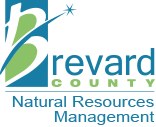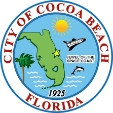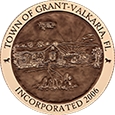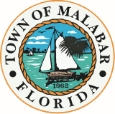Pick Up After Your Pet! Busting Popular Myths
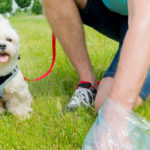 If you are on the NextDoor.com website and live in Viera, Rockledge, Suntree or Melbourne, chances are you have seen posts about an offensive problem that really irritates your neighbors: pet parents that do not pick up their dogs’ poop. Not only is this unpleasant for those enjoying the outdoors, it introduces a real health risk to the people and animals living in the community, not to mention it is against the law!
If you are on the NextDoor.com website and live in Viera, Rockledge, Suntree or Melbourne, chances are you have seen posts about an offensive problem that really irritates your neighbors: pet parents that do not pick up their dogs’ poop. Not only is this unpleasant for those enjoying the outdoors, it introduces a real health risk to the people and animals living in the community, not to mention it is against the law!
Myth #1: Dog poop will fertilize the yard. Nothing could be further from the truth! Dog feces is actually detrimental to your grass. While excrement from an animal on a vegetarian diet can be useful for the soil, your dogs’ waste is not. Poop is made up of what the animal eats. A dog eats a protein-rich diet heavy with animal fats, which can lead to a nutrient imbalance in the grass. In fact, the acidic makeup of dog poop wreaks havoc on a lawn, burning and browning the grass when left around for long periods. It is vital for the health of your lawn to pick up that poop!
Myth #2: Dog poop will decompose quickly, and no one will ever know it was there. Sorry but that just isn’t so. It can take 2-3months before the visual reminders of that poop pile are gone. According to the EPA parasites and egg larvae from dog poop can remain in the soil for years after the poop is gone.
Myth #3: Picking up dog poop with a plastic bag and tossing it in the garbage is the best way to get rid of poop. Not really. It can take anywhere from 10 to 1,000 years depending on what type of plastic bag you use, for the bag to decompose, which adds to environmental strains. The problem is that even biodegradable bags take a long time to decompose. Adding more waste to our ever-expanding landfills isn’t the greenest option. Not to mention the fact that the dog poop can still contaminate the earth with runoff water from storms. And more poops in the landfill will add more methane gas to the air, which makes air quality worse. The best way to get rid of the poop is with a designed composter that breaks down a dog’s poop while containing the bacteria and keeping your lawn clear of unwanted pathogens. You could also flush the dog poop down the toilet like you flush your own. Once there, it will be treated in a water treatment facility that will kill the bacteria before it grows and damages your yard.
Having that poop scooped is part of being a responsible pet parent. I know things get busy and time gets away from us. Don’t worry! We can come and make sure your pet’s waste is taken care of responsibly. All of our team members are trained to walk dogs in a way that is respectful to your entire community. We keep them off of private property at all times and allow them to relieve themselves in the grassy area between the street & sidewalk (in communities that have this layout).
When the small median area isn’t available, we encourage dogs to go towards the edge and we always clean up behind our clients. Your neighbor’s health and happiness are important so make sure you are hiring a service that respects both you AND your community! Be a good neighbor & follow the law – pick up after your dogs!
Who does love when you leave dog poop in the yard?
Weeds! Weeds can thrive when dog poop is lying around. Let’s face it; it seems like weeds can survive anything. While your grass may not like the acidic content of dog poop, weeds will flourish. Many Melbourne, Rockledge and Viera yards are seeing this very issue with all of our recent rain adding to the mix.
Rodents! Rats are scavengers and will go after an easy and available food source. Now if given the options between a bag of food and dog poop, there is a pretty good chance the rat will pick the bag of food over the dog poop. However, if the rat is hungry and finds its way into the yard to snack on dog poop, it will continue to explore its options for a better food source. Not to mention, telling all of its rat buddies where to find the good stuff!
So let’s help keep the rodents and weeds at bay by picking up the dog poop. That gives bonus points for being a responsible pet parent as well as a fantastic neighbor. And we can’t forget about our lovely Homeowners Association (HOAs)! A couple of years ago, I received a dreaded ‘Covenant Violation Notice’ in the mail for weeds in my front flowerbed. I had recently had my landscaping redone so I thought surely it was an error. I went outside and counted… yep I had weeds alright. To be exact, I had 13 weeds. THIRTEEN weeds and I was being threatened with a fine!! No matter how ridiculous that warning was, keeping weeds at bay in our yards is important and keeping dog waste cleared up is a way to do this.
Here is the Dirty Truth
Dog poop can contain a lot of nasty bacteria and pathogens. Evidence shows that exposure to dog feces can lead to STI's.
This means that by being in an area that pet feces have not yet been removed, you or your pet could be coming in contact with remnants of poop and possible pathogens.
Feces particulates can spread through weathering, especially if it is left to lie there for long periods. A sprinkler system or a heavy storm surge can move the feces or pathogens growing on the feces into streams, rivers, and the ocean. It can also spread the viruses and parasites around the yard contaminating all the soil in the vicinity of the original poop pile.
Just one gram of poop contains over 23 million fecal coliform bacteria. And one poop pile, depending on the size of your dog, is a lot more than one gram.
Children are the most at risk of accidental contamination. Kids love to play outside and get their hands and feet dirty! They also tend to forget to wash their hands before touching their faces or putting their hands in their mouths. If they forget they may have accidentally introduced a pathogen into their body.
It is so vital to scoop that poop because we do not want any person or pet to contract any of the following infections that have been transmitted through pet waste:
Common Soil-Transmitted Infections (STIs):
- Hookworm: An intestinal parasite that enters the human body through the skin, usually from the soil. The parasite then moves into the intestinal tract. It can cause a rash, sores, pain in the abdominal area, nausea, vomiting, and diarrhea.
- Roundworm: While common in puppies and their mothers, roundworms can cause a significant threat to humans. It is rare, but if humans get sick from coming in contact with soil that has been contaminated, they can get ailments that affect their eye, lung, heart, and neurological functions.
- Whipworm: An intestinal parasite that can cause bloody diarrhea in dogs.
- Threadworm or Pinworms: Can be transmitted through fecal matter and affect humans and dogs. The worms will live for about 5-6 weeks in the intestinal (GI) tract before dying out, but usually not before they have laid more eggs that will hatch in 1-2 weeks. These worms cause diarrhea and inflammation of the GI tract.
- Parvovirus: A highly contagious viral infection in dogs, they can acquire it just by sniffing another dog’s poop! It can live in the soil for up to a year. Dogs that are not treated for Parvovirus have a 91% mortality rate.
- Cryptosporidium: A parasitic microorganism that causes gastrointestinal illness for 1-10 days. For people with weakened immune systems, it can be fatal.
- Giardia Lambia: A parasitic microorganism that gathers in the small intestines and reproduces turning into a Giardiasis infection in humans. Symptoms include bloating, nausea, vomiting, and fatigue.
- Salmonellosis: A bacterial infection, most common in children. Symptoms include nausea, vomiting, headache, and muscle ache. The CDC says dogs can carry salmonella without showing signs of infection.
All these pathogens can live in dogs’ poop, so it is vital to scoop that poop!
Don’t forget the law
So why not let the dog poop in the high grass area of a public park that no one goes to? Or why not let the dog go in the corner of the lot that no one uses and leave it there?
Brevard County Code of Ordinance, 14-59 states that “no animal shall be permitted or allowed to defecate or urinate upon any public property, or any private property, without the permission of the property owner. It shall be the responsibility of the owner or person in control of the animal to dispose of or remove any excretions caused by the animal.”
If you are caught violating this law, the first offense is a fine of $50. Each subsequent offense is $65. That does not include any fine or penalty your HOA or neighboorhood association may charge for violations to their agreements.
Also – it’s just plain rude and downright disgusting! Don’t be ‘that guy’!
Scooping poop comes down to more than being a good neighbor! It is imperative for the health of those you love, and it is the law. We all want to live in a beautiful place with our wonderful pets.
 a clean lagoon is everybody’s business.
a clean lagoon is everybody’s business.Lagoon LoyalTM is a new and growing program that encourages Brevard County residents to take actions that benefit the health of the Indian River Lagoon by offering rewards from local businesses. These actions help reduce excess algae-feeding nutrients that enter our Lagoon through groundwater and stormwater.





